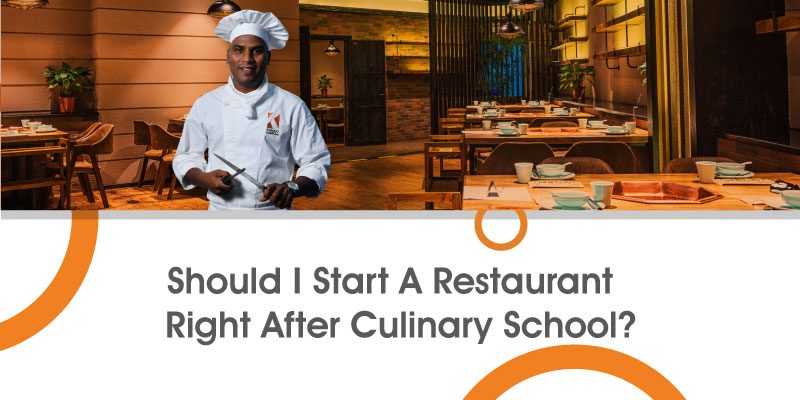The answer to this is yes and no. Running a restaurant successfully requires the right combination of a number of factors, some of which may be out of your control. Riding the wave will ensure you not only stay afloat but thrive. But can you do this fresh out of culinary school?
Here are the basic elements required to run a kitchen or restaurant:
BUSINESS PLAN
Nothing will work without a rock-solid business plan. You need to think of the immediate and not-so-distant future, as well as a few years ahead. Business plans should be drawn up only after identifying potential customers and completing thorough marketplace research. It will consist of the location and space, investment costs, rent, and salaries, etc for the first few months.
FUNDING
According to The Restaurant Times, it takes a quick-service restaurant 3-6 months to break even. Casual dining restaurants take around 18 months, while fine dining restaurants take at least two years. Many single establishment restaurants close within five years. You will need funding to get you through this time.
ENVIRONMENT
It’s common knowledge that it can be difficult to start a business in a poor economy. It’s not impossible, but you’ll have to be clever about it. You’ll also need to ensure that your location is consistent with the type of restaurant. It might make little sense to open an upscale restaurant in a middle-class neighborhood.
EXPERIENCE
You should ideally have experience in real-world situations before opening your own restaurant. Understanding how to navigate negotiations with vendors, governing authorities, deal with staff issues, and learning your customers can take time. Can you risk this time at your first restaurant?
TEAM
One of the biggest factors in the success of a restaurant is its team, particularly if you have little to no experience in running one. Hire a team that’s seen some time in kitchens, and work with them to learn fast. But remember, a good, experienced team costs money.
MARKETING
For new restaurants and catering businesses, marketing plays a vital role. A large percentage of guests research restaurants online before visiting, and food-related content can entice them to try new ventures. Make the most of social media, network in the right places, design deals, and target your customers well. Consider creating a brand persona and focus on your USPs.
BOOKKEEPING
Stay on top of accounts as breaking even takes time. Bookkeeping helps track detailed costs and revenue and lays a strong foundation for your restaurant. With effective bookkeeping, you can make better operational decisions. Track daily sales, streamline expenses and outgoings, manage payroll data, review profit and loss every day, and keep an eye on changing costs.
CONCLUSION: Given the amount of money, risk, and experience it takes to run a successful business, it seems wise advice to avoid opening your own restaurant straight out of culinary school. But there are always exceptions to these rules.
It makes better sense to run a kitchen with someone else’s money first and then invest your own funds. For this, you’ll need a convincing plan for investors. Working with good incubators can help refine your plan before taking it to investors. As a student of Kamaxi College of Culinary Arts, you’ll have access to FIERCE Kitchens where the expertise of mentors in the field can give you a worthy push towards running a restaurant right after you graduate.







Leave a Reply